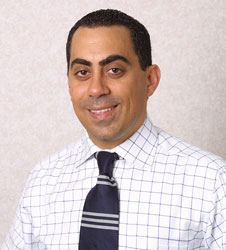
Top stories






More news

Marketing & Media
Warner Bros. was “nice to have” but not at any price, says Netflix

Logistics & Transport
Maersk reroutes sailings around Africa amid Red Sea constraints

















Selumetinib, also known as AZD6244 (ARRY-142886), blocks a protein called MEK, which cancer cells need to proliferate and survive.
Biliary cancer is a malignancy of cells lining the bile ducts and gall bladder. About 100 000 patients are diagnosed annually worldwide with the disease, representing 15-20% of all liver-cancer cases. Most patients present at later stages of the disease, which has a universally poor outcome.
The findings of this 28-patient, multi-institutional phase II study are reported online in the Journal of Clinical Oncology with an accompanying editorial.
"This malignancy has no good standard of care," says principal investigator Dr. Tanios Bekaii-Saab, medical director of gastrointestinal oncology and a medical oncologist at Ohio State's Comprehensive Cancer Centre-James Cancer Hospital and Solove Research Institute.
"Our study provides a strong rationale for developing this agent further in larger trials, probably in combination with other drugs, which we hope will enable us to establish a new standard of care for biliary cancers in the near future," adds Bekaii-Saab.
In addition to Ohio State, trial participants included the University of North Carolina, Vanderbilt University and Emory University.
Selumetinib belongs to a class of drugs called protein-kinase inhibitors. The agent selectively inhibits the protein kinases MEK1 and MEK2. It is part of a signalling pathway that is often damaged in biliary cancer cells. The trial showed the following:
Patients who lacked a target protein called pERK did not seem to respond to the drug, suggesting that the drug may not work if the protein is missing in the cancer cells. "This finding suggests that in the future we may be able to identify which patients are most likely to respond to the drug," he adds.
The Ohio State team was also involved in a second study reported in the same issue of Journal of Clinical Oncology that used selumetinib to treat liver cancer.
For more information about the selumetinib trial for biliary cancer, visit ClinicalTrials.gov, identifier NCT00553332.
Funding from the National Cancer Institute supported this research.
Other researchers involved in this study were Mitch Phelps, Xiaobai Li, Motoyasu Saji, Stephanie Balsom, Catherine Balint, Ryan Liersemann, Mark Bloomston, William Marsh, Michael Grever, Matthew D. Ringel and Miguel Villalona Calero of The Ohio State University; Laura Goff of Vanderbilt University; John Kauh of Emory University; Bert O'Neil of University of North Carolina; Vasily V. Vasko of Uniformed Services University of the Health Sciences; L. Austin Doyle of NCI/CTEP; and Gilian Ellison of Astra Zeneca, Macclesfield, United Kingdom.
The Ohio State University Comprehensive Cancer Centre - Arthur G. James Cancer Hospital and Richard J. Solove Research Institute (http://cancer.osu.edu) is one of only 40 Comprehensive Cancer Centres in the United States designated by the National Cancer Institute. Ranked by US News & World Report among the top cancer hospitals in the nation, The James is the 205-bed adult patient-care component of the cancer program at The Ohio State University. The OSUCCC-James is one of only seven funded programs in the country approved by the NCI to conduct both Phase I and Phase II clinical trials.
Source: The Ohio State University